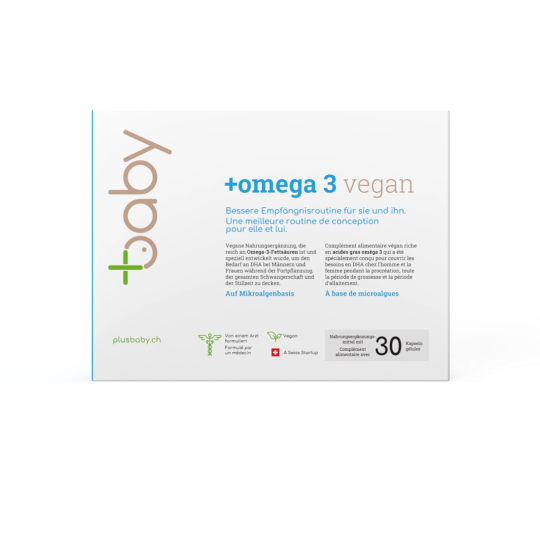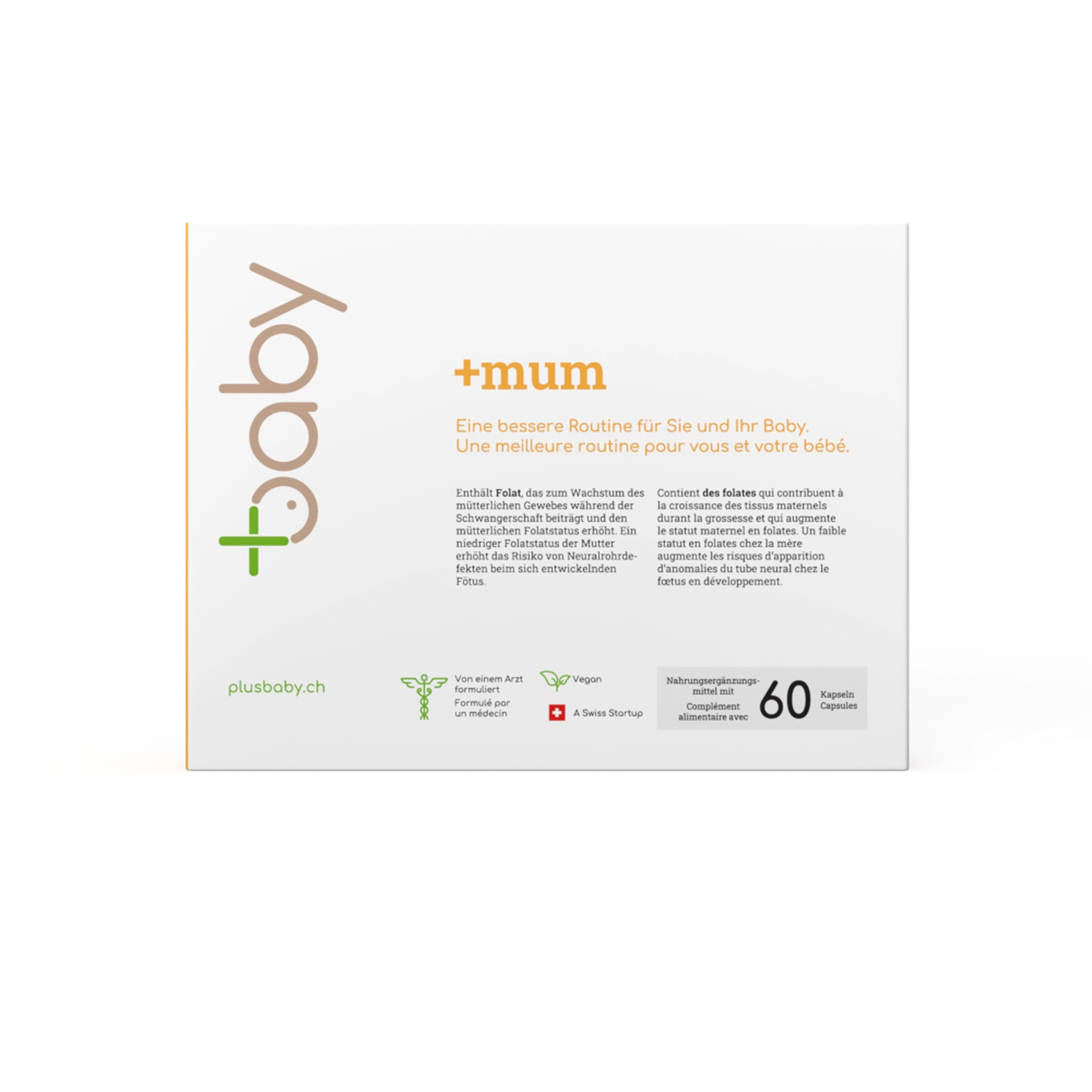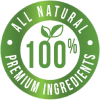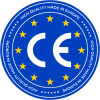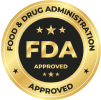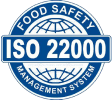Omega 3 vegan: what are the benefits for the body?: In the article “Vegan Omega 3: What benefits does it have for the body?” we delve into the fascinating world of omega-3 fatty acids, essential nutrients that play a crucial role in maintaining our health and wellbeing. Omega-3 fatty acids are recognised for their multiple benefits to the body, ranging from promoting cardiovascular health to improving cognitive function and supporting mental health. Traditionally associated with animal sources such as oily fish, omega-3 fatty acids are now also available in plant-based forms and offer a valuable alternative for those following a vegan diet or looking to reduce their consumption of animal products.
Vegan omega-3 fatty acids, mainly derived from sources such as algae, flaxseed, walnuts and chia oil, offer a sustainable and ethical solution to obtaining these essential fatty acids without jeopardising vegan principles. This transition to plant-based sources of omega-3 is not only beneficial for individual health, but also helps to protect the environment and animal welfare. By exploring the benefits of vegan omega-3 fatty acids for the body, this article aims to provide valuable information on their nutritional importance and promote a more inclusive and responsible approach to diet.
The heavy metals contained in fish
In addition to the benefits already mentioned, omega-3 fatty acids from algae sources grown in controlled environments have one major advantage: the significant reduction of heavy metals commonly found in fish and other seafood. Fish, especially those at the top of the marine food chain, tend to accumulate heavy metals such as mercury, lead and cadmium in amounts that can be harmful to human health. These pollutants can negate some of the benefits of omega-3 fatty acids by contributing to various health problems when consumed in large quantities over long periods of time.
In contrast, the algae used to produce vegan omega-3 fatty acids are grown under strictly controlled conditions, minimising exposure to these toxic pollutants. This makes algae oil not only a sustainable and ethical source of omega-3 fatty acids, but also a safer alternative, especially for vulnerable populations such as pregnant and breastfeeding women, where exposure to heavy metals must be strictly avoided to protect the baby’s development. This strict control of the growing environment ensures that algae-derived omega-3 fatty acids deliver all the benefits of these essential nutrients without the risks associated with the bioaccumulation of toxins found in many marine products.
The importance of avoiding exposure to heavy metals takes on an added dimension when it comes to fertility and pregnancy. Omega-3 fatty acids from algae sources grown in a controlled environment offer increased safety as they are virtually free of harmful heavy metals such as mercury, which can have a detrimental effect on the neurological development of the foetus and reproductive health in general. This absence of contaminants makes omega-3 fatty acids from algae particularly valuable for couples trying to conceive, as well as pregnant and breastfeeding women who need optimal levels of essential fatty acids to support the development of their child’s brain and vision while protecting their own health.
Opting for vegan omega-3 fatty acids, particularly from algae, can therefore contribute significantly to a healthy pregnancy and fertility as they provide essential nutrients without the risk associated with the build-up of toxins found in marine sources. This preventative approach is crucial not only for the well-being of the mother, but also for giving the next generation the best possible start in life. This emphasises the importance of choosing safe and clean sources of omega-3 as part of a balanced and conscious diet.
CHF 39.90 Original price was: CHF 39.90.CHF 19.90Current price is: CHF 19.90.
Omega-3 fatty acids: their definition and what benefits do they have for the body?
Omega-3 fatty acids are a category of polyunsaturated fatty acids (PUFA) that are essential for the proper functioning of the human body but cannot be synthesised endogenously, so they must be obtained from food. These lipid compounds are characterised by the presence of a double bond at the third carbon atom from the methyl end of the carbon chain, a feature that gives them special physicochemical and biological properties. Of the omega-3 fatty acids, eicosapentaenoic acid (EPA) and docosahexaenoic acid (DHA) are particularly well studied due to their health-promoting effects.
What are EPA and DHA?
EPA and DHA play a crucial role in the modulation of inflammatory processes as they can influence the synthesis of eicosanoids, lipid mediators involved in inflammatory and immune responses. Their anti-inflammatory effect contributes to the prevention of chronic inflammatory diseases such as certain cardiovascular and joint diseases. In addition, EPA and DHA are fundamental components of phospholipids in cell membranes, where they contribute to membrane fluidity and influence various cell functions, particularly in the brain and cardiovascular system.
Cardiovascular health benefits from EPA and DHA intake via several mechanisms, including lowering plasma triglycerides, improving the lipid profile and reducing platelet aggregation, thereby reducing the risk of thrombus formation and coronary heart disease. In the brain, these essential fatty acids are involved in neurogenesis, neuroplasticity and protection against oxidative stress, thus contributing to the prevention of neurodegenerative disorders and the maintenance of cognitive functions.
The DHA
Docosahexaenoic acid (DHA) is a long-chain polyunsaturated fatty acid from the omega-3 fatty acid family that is known to play a crucial role in various aspects of human health, including fertility, pregnancy and lactation. Its presence is essential in cell membranes, particularly in the brain and retina, where it positively influences neuronal and visual development.
Importance of DHA for fertility
Scientific research suggests that DHA contributes to improving fertility in both men and women. In men, DHA is involved in modulating the fluidity of sperm membranes, improving their motility and their ability to fertilise the egg. An adequate concentration of DHA in semen is associated with better sperm quality and a higher fertility rate. In women, DHA is involved in the regulation of sex hormones and can promote a more favourable uterine environment for conception and embryo implantation.
DHA during pregnancy
During pregnancy, DHA plays an important role in the development of the foetus’ nervous system, including the brain and retina. Studies have shown that an adequate intake of DHA by the mother can help optimise the baby’s cognitive and visual development. In addition, adequate DHA intake during pregnancy is associated with favourable pregnancy outcomes, such as longer gestational length and better birth weight, reducing the risk of premature birth and associated complications.
DHA and breastfeeding
DHA is also crucial during breastfeeding as it is passed on to the infant through breast milk, contributing to the continued development of the brain and vision after birth. DHA levels in breast milk vary depending on the mother’s diet, emphasising how important it is for breastfeeding mothers to maintain an adequate DHA intake to support the optimal development of their child.
To summarise, DHA plays a vital role at every stage from fertility to breastfeeding, not only promoting the chances of conception and healthy fetal development, but also supporting the growth and neurovisual development of the infant after birth. Therefore, particular attention should be paid to including DHA-rich sources in the diet or considering supplements specifically designed to meet the increased need for this valuable resource during these critical periods.
Saturated fatty acids
In contrast, saturated and trans fatty acids, which are often associated with an unbalanced diet, are known to contribute to the rise in LDL (“bad”) cholesterol and increase the risk of cardiovascular disease. Saturated fatty acids, which are mainly found in animal fats and some vegetable oils, are characterised by the absence of double bonds between the carbon atoms, which makes them stiffer and allows them to build up in the arteries. Trans fatty acids, on the other hand, are produced by industrial hydrogenation processes and change the spatial arrangement of unsaturated fatty acids, causing them to have similar or even more detrimental effects on cardiovascular health than saturated fatty acids.
Therefore, replacing saturated and trans fatty acids with omega-3 polyunsaturated fatty acids in the diet is a recognised nutritional strategy for improving cardiovascular health and reducing inflammation, highlighting the importance of adequate intake of EPA and DHA for maintaining good health.
Vegan plant sources of omega-3 fatty acids.
Omega-3 fatty acids are mainly associated with fish oils and seafood, which are recognised sources of DHA and EPA. However, for people who follow a vegan diet or are concerned about the environmental and ethical impact of fishing, plant-based sources of omega-3s offer a viable and useful alternative. Among these, flaxseed, chia seeds, rapeseed oil and some algae are characterised by their significant content of alpha-linolenic acid (ALA), a precursor of omega-3 fatty acids that can be partially converted by the body into EPA and DHA.
Although the conversion rate of ALA to EPA and DHA is relatively low, the inclusion of these plant sources in the diet contributes to the overall intake of omega-3 fatty acids, which are crucial for the maintenance of good cardiovascular and cerebral health as well as anti-inflammation. In addition, these plant sources provide other beneficial nutrients such as fibre, antioxidants and minerals.
The advantage of plant sources of omega-3 over animal sources also lies in their low environmental impact and the absence of marine pollutants such as heavy metals. Fish, especially those at the top of the food chain, can accumulate significant amounts of mercury and other toxins. Algae, as a source of omega-3 grown under controlled conditions, offer a safe and sustainable solution that is free from these pollutants. They are a direct source of DHA, especially for people who follow a vegan diet and want to optimise their omega-3 intake without the drawbacks associated with animal sources.
To summarise, plant-based sources of omega-3, particularly algae, are not only a viable option for those who exclude or limit the consumption of animal products, but also a strategy to reduce heavy metal exposure.
Benefits of vegan omega-3 for the body
Vegan omega-3 fatty acids, particularly those from sources such as algae, offer a wide range of health benefits and rival their marine-derived counterparts, offering additional benefits of sustainability and non-toxicity.
Effects on the cardiovascular system
Vegan omega-3 fatty acids have been shown to significantly reduce blood triglyceride levels, a major risk factor for cardiovascular disease. By modulating lipid metabolism, they help to prevent the accumulation of lipids in the blood vessels, thereby reducing the risk of atherosclerosis. In addition, the inclusion of omega-3 fatty acids in the diet can help improve the lipid profile by increasing HDL (good cholesterol) levels and lowering LDL (bad cholesterol) levels, providing additional protection against heart disease.
Effects on brain health
Omega-3 fatty acids, particularly DHA, play a crucial role in supporting brain development and function. DHA is a major component of cell membranes in the brain, where it influences membrane fluidity and receptor function, which is crucial for signalling between neurons. A diet rich in vegan omega-3 fatty acids may help prevent neurodegenerative diseases such as Alzheimer’s due to their anti-inflammatory properties and their ability to protect the brain from oxidative stress.
Anti-inflammatory roles
The anti-inflammatory properties of vegan omega-3 fatty acids make them valuable in the treatment of chronic inflammatory diseases such as rheumatoid arthritis and ulcerative colitis. By inhibiting the production of inflammatory mediators, they can help to reduce the pain, swelling and stiffness associated with these conditions, improving the quality of life of those affected.
Benefits for vision and skin
DHA is also important for visual health as it is an important structural component of the retina. An adequate supply of DHA can help prevent age-related macular degeneration. For skin, vegan omega-3 fatty acids help maintain skin integrity and moisture levels, which reduces the signs of ageing and contributes to a healthier complexion.
Importance during pregnancy and breastfeeding
During pregnancy and breastfeeding, the need for DHA increases to support the optimal development of the baby’s brain and eyes. Vegan sources of omega-3 that are free from heavy metals provide a safe way to increase DHA intake, which is essential for the growth and neurovisual development of the infant.
In summary, vegan omega-3 fatty acids offer a variety of health benefits, acting as a protective agent against a variety of disease conditions while supporting development and overall well-being. Including them in your daily diet is an important nutritional strategy for maintaining optimal health on your fertility journey.
Plusbaby omega 3 vegan DHA: The benefits to the body of an optimal vegan solution.
Plusbaby +omega 3 vegan DHA represents a remarkable advance in nutritional supplements, offering an optimal vegan solution rich in DHA, specifically designed for men and women of childbearing age and to support increased needs during pregnancy and lactation. This innovative product emphasises the importance of an adequate supply of omega-3 fatty acids, which are essential for the neurological development of the foetus and the general well-being of parents.
The vegan formulation of Plusbaby +omega 3 vegan DHA is a unique selling point and fulfils the needs of people who follow a vegan diet or are looking for alternatives to animal sources of omega-3. Enriched with DHA derived from algae, this food supplement ensures a direct supply of this essential fatty acid without the disadvantages of potential contaminants found in marine products. Plusbaby is also unique in that it supports fertility by providing the necessary nutrients to optimise the reproductive health of expectant parents.
Plusbaby +omega 3 vegan DHA was developed and manufactured in Switzerland and enjoys a reputation for high quality, guaranteed by strict certifications such as GMP (Good Manufacturing Practice), vegan and gluten-free. The formulation of this product was developed in collaboration with doctors, ensuring a solid scientific basis and proven efficacy. These certifications and the Swiss origin of the product ensure that consumers have increased confidence in its safety, purity and efficacy.
Integrating Plusbaby +omega 3 vegan DHA into the daily routine is easy and beneficial. To maximise the benefits, it is recommended to take the suggested daily dose with a meal to enhance the absorption of the fatty acids. This practice can fit harmoniously into a balanced and healthy diet and help prepare the body for conception, support a healthy pregnancy and promote optimal infant development during breastfeeding.
Plusbaby +omega 3 DHA is not just a dietary supplement; it is a contribution to a lifestyle centred on health and well-being by providing a solid nutritional foundation for the crucial stages of life. Its commitment to quality, sustainability and efficacy makes it a preferred choice for people who recognise the importance of healthy nutrition for fertility, pregnancy and beyond.
FAQs about vegan omega 3 and Plusbaby +omega 3 vegan DHA.
Q: Are vegan omega 3 fatty acids as effective as those from the sea?
A: Yes, vegan omega 3, particularly from algae, provides a rich source of DHA, which is essential for brain health, cardiovascular health and general wellbeing.
Q: Can Plusbaby +omega 3 DHA be taken during pregnancy?
A: Absolutely. Plusbaby +omega 3 DHA is specifically formulated to support fertility and health during pregnancy and breastfeeding and provides a safe and effective source of DHA.
Q: How can I incorporate Plusbaby +omega 3 DHA into my daily diet?
A: Taking the recommended dose of Plusbaby +omega 3 DHA with a meal can optimise absorption and can be easily integrated into your daily dietary routine.
Q: Is Plusbaby +omega 3 DHA suitable for all diets, including gluten-free and vegan diets?
A: Yes, Plusbaby +omega 3 DHA is designed to be compatible with a variety of diets. It is certified vegan, gluten-free and is manufactured without the use of animal products and therefore fulfils the needs of people following certain diets.
Q: Are there any known side effects of taking Plusbaby +omega 3 DHA?
A: Plusbaby +omega 3 DHA is generally well tolerated and designed to be taken as part of a balanced diet. As with all supplements, if you have certain medical conditions, you should consult your doctor before starting a new supplement.
Q: How long should I take Plusbaby +omega 3 DHA before conception?
A: It is recommended to start taking Plusbaby +omega 3 DHA at least 3 months before trying to conceive to optimise reproductive health and prepare the body for pregnancy.
Q: Can Plusbaby +omega 3 DHA vegan be taken in conjunction with other supplements or medications?
A: Plusbaby +omega 3 DHA can usually be taken in conjunction with other supplements, but it is important that you consult a healthcare professional to evaluate your overall supplement diet, especially if you are taking prescription medications.
Q: What time of day should I take Plusbaby +omega 3 DHA to maximise its effect?
A: To ensure optimal absorption, you should take Plusbaby +omega 3 DHA with a meal, especially a fatty one, at any time of day that suits you.
Q: Does Plusbaby omega 3 vegan DHA only contribute to reproductive health or does it have other health benefits?
A: Although specifically formulated to support fertility and health during pregnancy and lactation, Plusbaby +omega 3 DHA also provides general health benefits, such as supporting cardiovascular and cerebral health due to its high DHA content.
Conclusion: What are the benefits of Omega 3 vegan body benefits?
Omega 3 vegan body benefits: The health benefits of vegan omega-3 are undeniable and provide important support for cardiovascular function, brain and overall wellbeing. Plusbaby +omega vegan 3 DHA is a high quality source of vegan omega 3 specifically designed to support men and women through the stages of fertility, pregnancy and breastfeeding. Switching to a vegan omega-3 enriched diet, as offered by Plusbaby, is a step towards holistic wellbeing and emphasises the importance of choosing high quality supplements to support our health at every stage of life.
CHF 39.90 Original price was: CHF 39.90.CHF 19.90Current price is: CHF 19.90.


